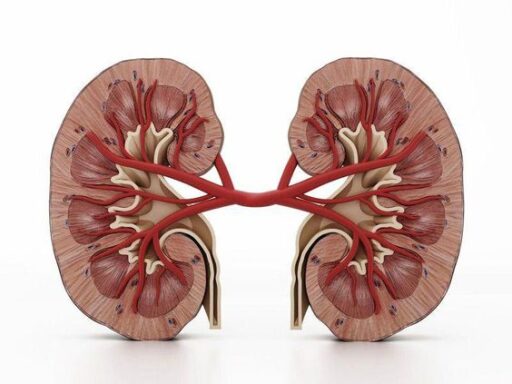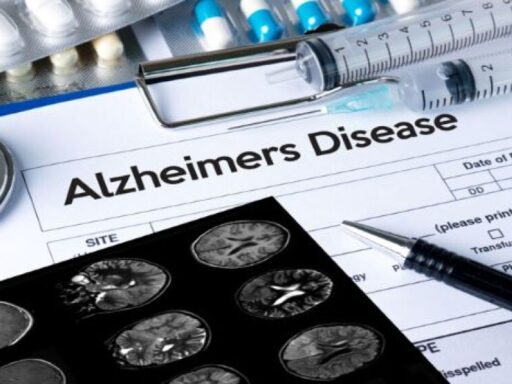Obesity is a global health problem affecting millions of people. The World Health Organization (WHO) defines obesity as having an unhealthy amount of body fat. It significantly increases the risk of chronic diseases like heart disease, stroke, and type 2 diabetes.Prescription medications obesity can be a tool to help people with obesity lose weight, but they are not a magic bullet.
Causes of Obesity
Obesity has many causes, including:
- Diet: Consuming too many calories, especially from unhealthy fats, processed foods, and sugary drinks, is a major culprit. These foods are often high in calories but low in nutrients, leading to weight gain over time.
- Physical Inactivity: Not getting enough exercise burns fewer calories and contributes to weight gain. The National Institute of Diabetes and Digestive and Kidney Diseases (NIDDK) recommends regular physical activity for weight management.
- Genetics: Some people are more genetically predisposed to gaining weight due to factors like body fat distribution or metabolism. However, genetics don’t dictate destiny; lifestyle choices significantly impact weight.
- Medical Conditions: Certain medical conditions, such as polycystic ovary syndrome (PCOS), hypothyroidism, and Cushing’s syndrome, can disrupt hormones and metabolism, leading to weight gain. Medications used to treat some health conditions can also cause weight gain as a side effect.
- Socioeconomic Factors: Access to healthy and affordable food, safe neighborhoods for physical activity, and social support structures can all affect weight control. People in lower socioeconomic brackets often face challenges in obtaining healthy foods and safe spaces for exercise.
- Psychological Factors: Stress, anxiety, and depression can sometimes lead to emotional eating or unhealthy coping mechanisms that contribute to weight gain.
Health Consequences of Obesity:
Obesity can increase the risk of many chronic diseases, including:
- Heart Disease: Obesity is a major risk factor for heart disease, the leading cause of death globally. Excess weight puts a strain on the heart, making it harder to pump blood throughout the body.
- Stroke: Obesity increases the risk of stroke, which occurs when blood flow to part of the brain is interrupted. High blood pressure, a common consequence of obesity, is a major risk factor for stroke.
- Type 2 Diabetes: Obesity is a major risk factor for type 2 diabetes, a chronic condition that affects the body’s ability to regulate blood sugar levels. Excess body fat can impair the body’s insulin sensitivity, leading to high blood sugar levels.
- Chronic Kidney Disease: Obesity can increase the risk of chronic kidney disease, which can eventually lead to kidney failure. The increased strain on the kidneys from filtering waste products in the blood can be worsened by obesity.
- Certain Cancers: Obesity is linked to an increased risk of several types of cancer, including breast cancer, colon cancer, endometrial cancer, and pancreatic cancer. The exact reasons for this link are still being studied, but it’s believed that hormonal changes and chronic inflammation related to obesity may play a role.
- Sleep Apnea: Obesity is a major risk factor for sleep apnea, a condition where breathing repeatedly stops and starts during sleep. This can lead to daytime sleepiness, fatigue, and difficulty concentrating.
- Osteoarthritis: Excess weight puts pressure on joints, especially weight-bearing joints like the knees and hips, accelerating cartilage degeneration and increasing the risk of osteoarthritis.
- Mental Health Issues: Obesity can also take a toll on mental health. People with obesity may experience depression, low self-esteem, and social stigma, which can further worsen their condition.
New Horizons in Obesity Treatment: Research and Advancements
The field of medications obesity studies is continuously evolving, with new discoveries and treatment alternatives rising. Here are some interesting advancements to discover:
The Gut Microbiome and its Impact: Research indicates a capability link among the intestine microbiome, the trillions of micro organism residing in our intestines, and weight problems. Certain intestine micro organism compositions might be associated with increased fats storage and trouble dropping weight. Studies are underway to investigate the possibility of manipulating the intestine microbiome thru prebiotics, probiotics, or fecal transplants to sell weight reduction.
The Role of Epigenetics: Epigenetics explores how environmental and lifestyle elements can have an impact on gene expression with out altering the underlying DNA collection. Research shows that early-existence reviews and environmental factors may influence how genes associated with metabolism and weight regulation are expressed. Understanding those mechanisms should lead to the development of personalised interventions for obesity prevention and control.
Pharmacological Advancements:
New medicines for weight problems are being developed that target extraordinary mechanisms. Some medications paintings by means of regulating appetite hormones, whilst others cognizance on increasing metabolic fee or blocking off fat absorption. Additionally, researchers are exploring the potential of aggregate cures the usage of existing or new medicines to achieve greater considerable and sustained weight loss.
Surgical Interventions: Bariatric surgical procedure remains a a success alternative for individuals with intense obesity (BMI exceeding forty) or those with a BMI over 35 with weight-associated health headaches. Newer, minimally invasive surgical techniques are being developed to reduce risks and enhance recuperation instances.
Telehealth and Digital Tools: The rise of telehealth and virtual gear offers promising avenues for weight problems management. Online packages, mobile apps, and wearable gadgets can provide remote assist, display progress, and deliver customized weight loss strategies.
Mind-Body Interventions: The hyperlink among strain, emotional ingesting, and weight problems is well-installed. Mindfulness-primarily based interventions, cognitive behavioral remedy, and pressure management techniques can play a critical role in promoting wholesome ingesting behavior and coping with emotional triggers for overeating.
Can Medications Help with Weight Loss?
Prescription medications obesity can be a tool to help people with obesity lose weight, but they are not a magic bullet. The Food and Drug Administration (FDA) regulates their use. There are different types of medications available, each working differently. Some medications suppress appetite, while others block fat absorption from food.
Here are some additional points to consider about medications for obesity:
- They are not a substitute for a healthy lifestyle. A healthy diet and regular exercise are essential for long-term weight loss and weight management.
- They can have side effects. Be sure to discuss the potential side effects of any medication with your doctor.
- They may not be right for everyone. Talk to your doctor about whether medication is an appropriate option for you.
Remember:
- medications obesity is not a substitute for a healthy lifestyle. A healthy diet and regular exercise are essential for long-term weight loss and management.
- medications obesity can have side effects. Discuss potential side effects with your doctor.
- medications obesity may not be right for everyone. Talk to your doctor to see if medication is the right option for you.
Conclusion:
Obesity is a serious health condition with a number of potential complications. While medications can be a helpful tool for weight loss, they should be used in conjunction with a healthy lifestyle. If you are concerned about your weight, talk to your doctor about the best course of treatment for you.







